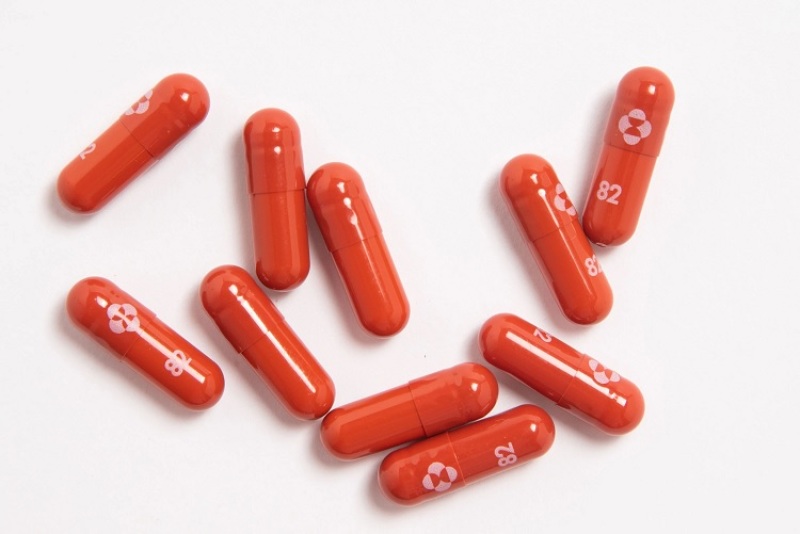
Merck made headlines in early October when it announced the trial results of a newly developed antiviral pill that effectively reduced the risk of hospitalization and death by up to 50%. Phase three clinical trial data released on October 1 showed that the experimental drug called molnupiravir lowered the chances that patients with newly diagnosed COVID would be hospitalized by up to 50%.
According to CNBC, Merck's molnupiravir comes in a tablet form and if approved would become the first pill to treat COVID. On Monday, the Big Pharma company asked the Food and Drug Administration (FDA) to authorize the use of molnupiravir to treat mild to moderate COVID in adults.
"The extraordinary impact of this pandemic demands that we move with unprecedented, urgency, and that is what our teams have done by submitting this application for molnupiravir to the FDA within 10 days of receiving the data," Merck CEO Robert Davis said in a press release. If approved, the new anti-COVID drug will be available to Americans as soon as late this year.
Business Insider reported that "Industry analysts expect Merck to make billions off the not-yet-authorized drug," with "some countries will be paying $12 per patient, while the US agreed to pay $712 per treatment course." The report added that Merck is "walking a tightrope" with its new anti-COVID pill and is expected to "reap billions in revenue" with it.
Others are already arguing that molnupiravir has a number of similarities with ivermectin, another anti-parasite drug that is readily available, affordable, and has shown to be effective in helping treat COVID.
Marilyn Singleton, M.D. argued in a story for WND that ivermectin "has 20 possible mechanisms of action against the SARS-CoV-2 virus, including interrupting viral entry into cells and anti-inflammatory action. Significantly, ivermectin is a protease inhibitor, that is, a substance that blocks proteins that allow viruses to reproduce themselves."
Coincidentally, Pfizer's new anti-COVID pill, currently called PF-07321332 and undergoing global phase two and three clinical trials, is also a protease inhibitor. It would be given to a patient early after the onset of COVID symptoms, just as hydroxychloroquine and ivermectin were recommended for COVID.
Singleton is blowing the whistle on how the U.S. government under the Biden administration is set to purchase up to $1.2 billion worth of the unapproved experimental drug. Ivermectin, which shows similarities to molnupiravir, costs about $100 per treatment. If these two drugs are highly similar and take about a similar amount of research, development, and resources to make, why is it priced at $700 per treatment?
These are the important questions Singleton believes should be asked, especially when the American pharmaceutical industry has spent $171,262,239 so far in 2021 in lobbying. Coincidentally, Pfizer and Merck were the top five clients. As per Insider, Merck now stands to make up to $22 billion in revenue from molnupiravir alone through 2030, making up for any lost revenue spent in lobbying if the drug gets approved by the FDA.






















